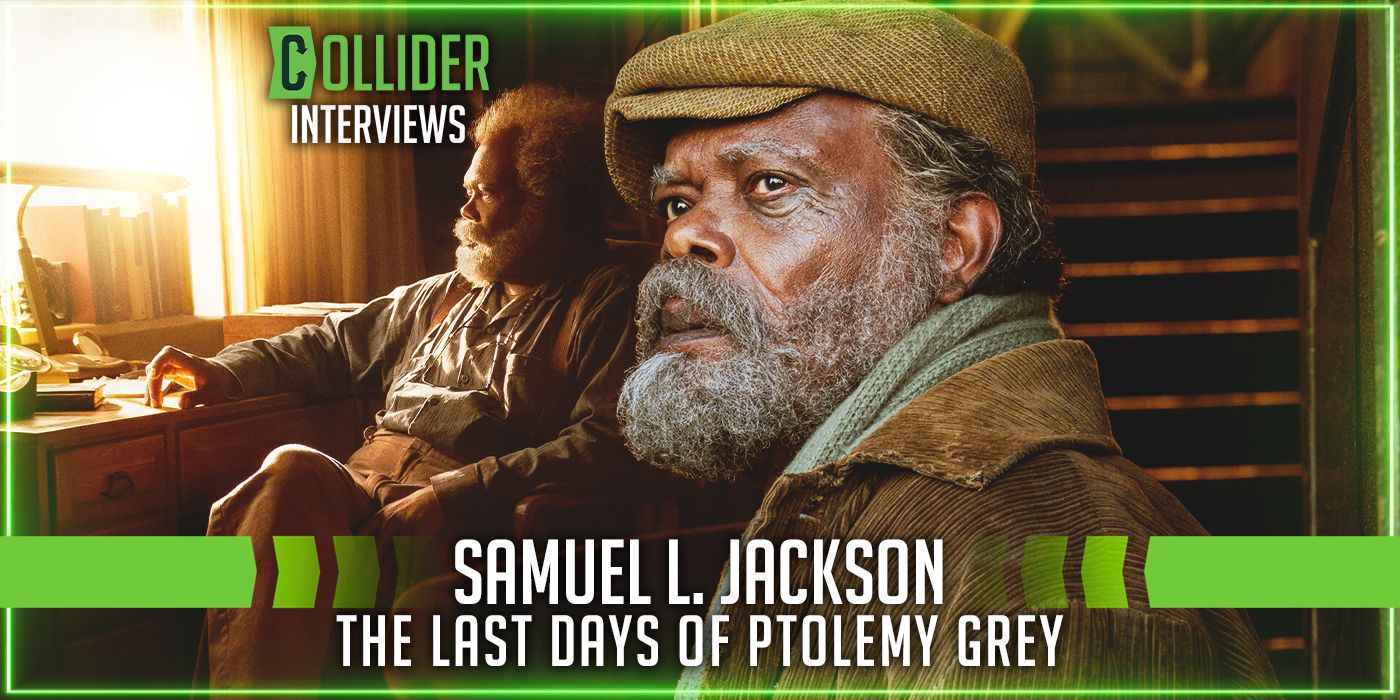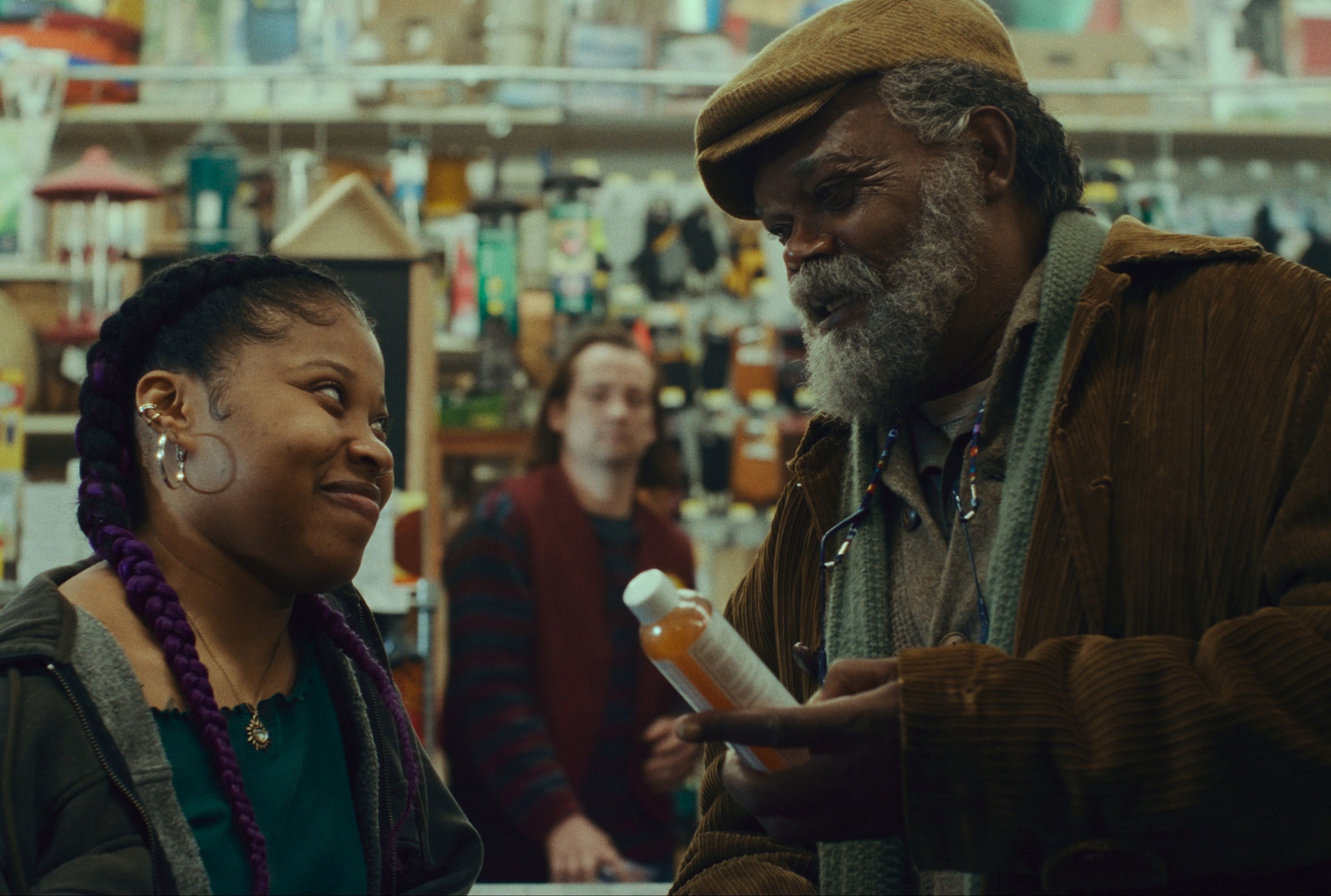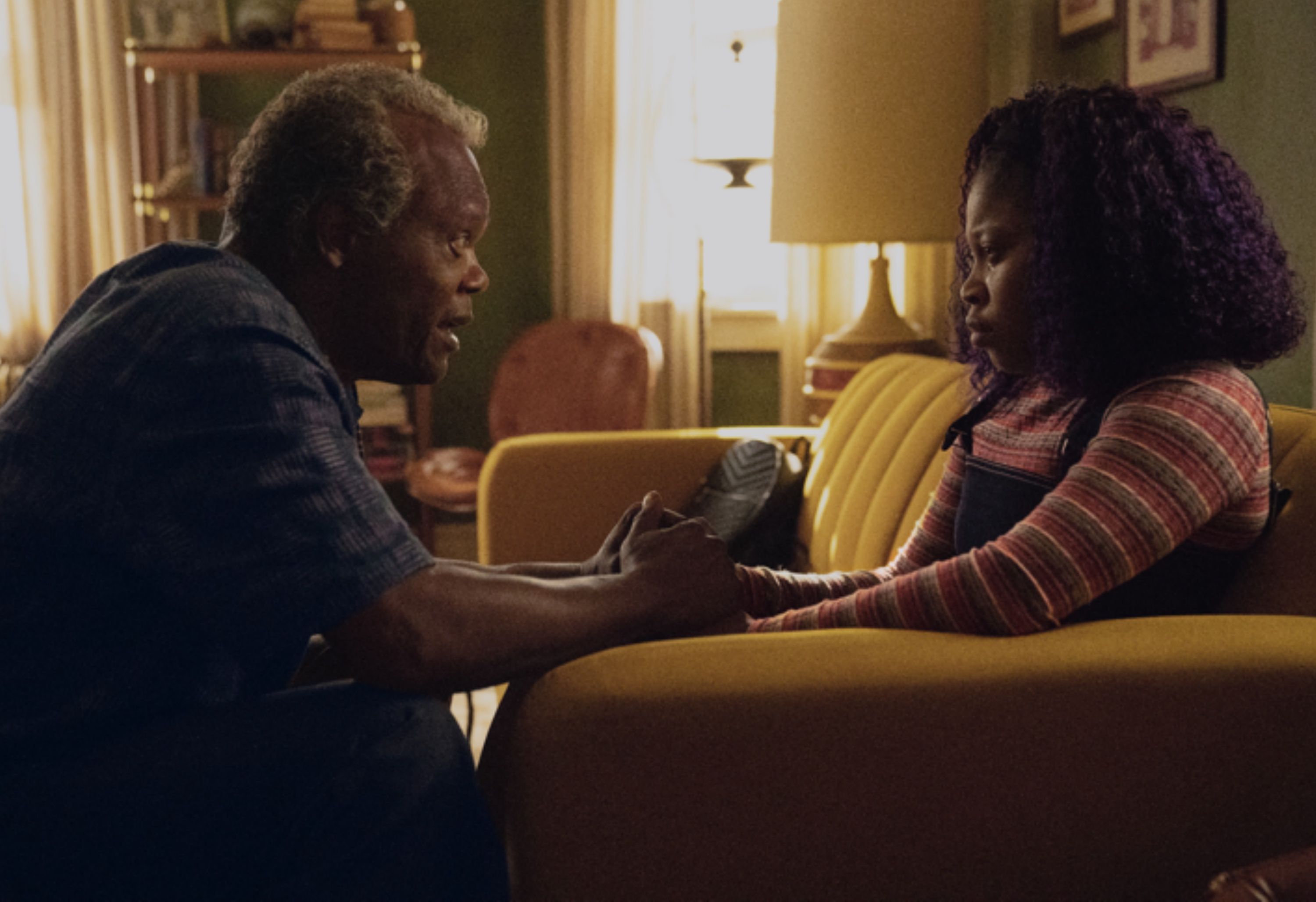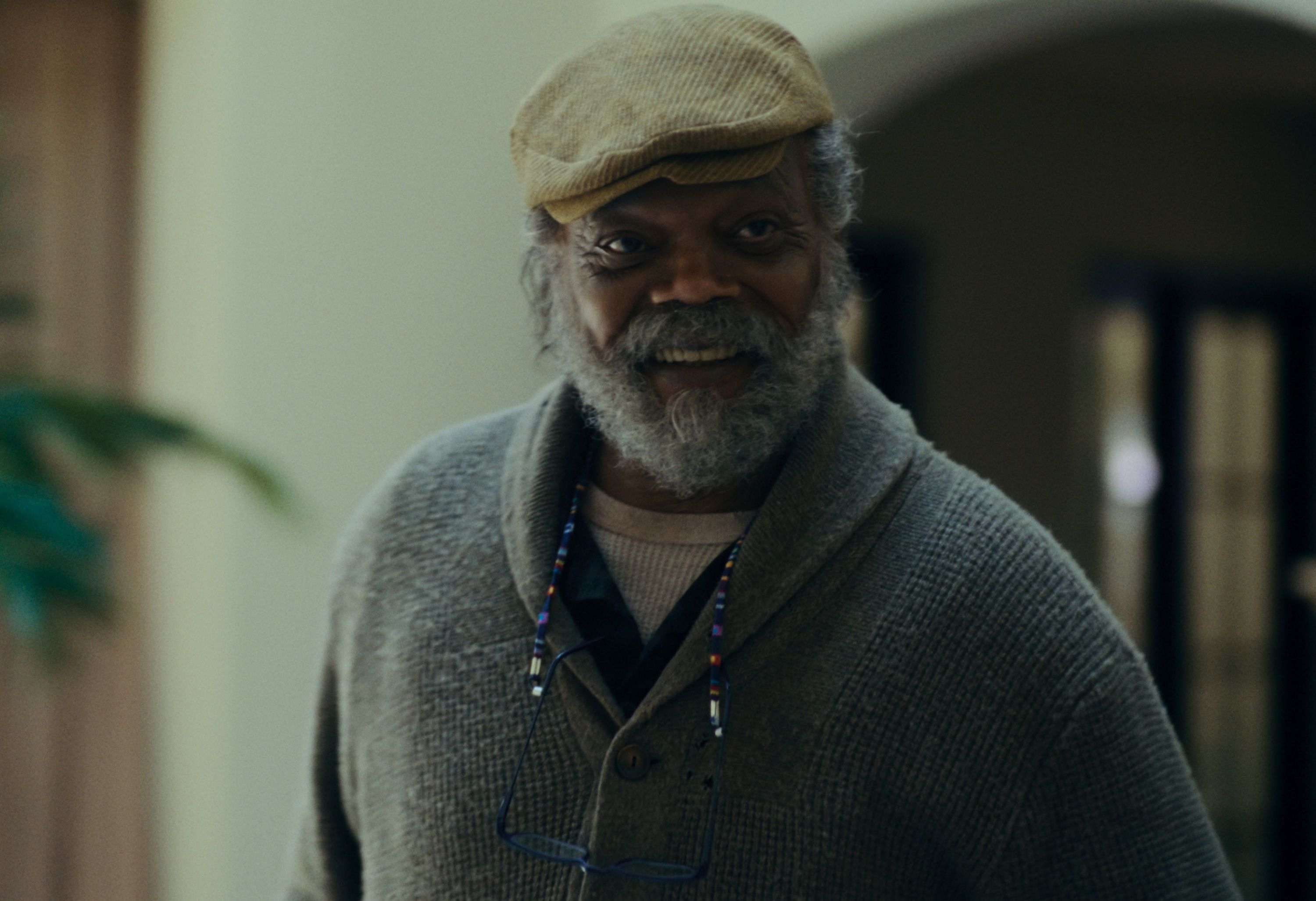Some actors are always great, and Samuel L. Jackson is undoubtedly one of those actors, but even great actors can give a truly special standout performance when they’re paired with a moving story that’s as beautifully written as The Last Days of Ptolemy Grey. Based on the acclaimed novel by best-selling author Walter Mosley, who was also the screenwriter for the project that was a decade in the making, the Apple TV+ series tells the story of an ailing man (Jackson) whose memory is failing him as dementia is threatening to take over. Instead of having family he can trust to help him, Ptolemy is left without a caretaker, until orphaned teenager Robyn (Dominique Fishback) comes into his life and realizes that the lessons that he can teach her and the emotional bond they form with each other are invaluable and life-changing.
During this 1-on-1 interview with Collider, which you can both watch and read, Jackson (who’s also an executive producer on the project, along with his wife, LaTanya Richardson Jackson) talked about the 10-year journey to finally getting this project made, why it was important to him to tell this story in series form, how he approached this character, his experience working with co-star Fishback, why he likes to keep things light between takes even on an emotional day, and what makes Walton Goggins an actor he enjoys sharing scenes with. He also talked about why he loves getting to play and keeps returning to the character of Nick Fury across the MCU, especially as a lifelong comic book fan.
Collider: First of all, this is a performance that you should be tremendously proud of. I truly appreciate everything you must have put into making this.
SAMUEL L. JACKSON: Thank you.
To start off with a bit of a silly, fun question before jumping into some more serious stuff, it seems like you, Spike Lee and Charles Barkley had a lot of fun making your March Madness commercials for Capital One. What were those like to shoot? Is that how things normally tend to go when you guys are together?
JACKSON: Well, we’ve been doing them for a while now, and they’re fun. They happen every year. We just did another five or six of them not long ago, that will start airing when March Madness starts. It’s always great to be able to do them. And Charles is so comfortable being the butt of the joke that it works out very well. We’re able to incorporate new people. We got Magic Johnson now sometimes, and we’ve got Larry Bird sometimes. It’s a fun job to do.
You’ve said previously that you’ve been thinking of this series in your head for 10 years and that you’d been talking to Walter Mosley about doing this for a long time. Did it take 10 years because you weren’t ready to do it before now, or did it just take that long to get made?
JACKSON: It took that long to get made. It’s been in different places. It’s had different writers. They’ve been trying to force an hour and a half to two-hour formats down our throats for a while, and I’ve resisted that because I felt the story needed to be longer and aired out. If you can do Boardwalk Empire or The Sopranos, or whatever, you can do this in eight episodes. It’s not a big deal. But nobody wanted to do that. So, there was some resistance there. We’d let the rights run out, and then we’d pick them back up and run somewhere else to see if we could do it again. But we finally reached a point where the format and the timing came together, where the characters would have an opportunity to breathe and give an audience the opportunity to take a trip with those particular characters, that hopefully is satisfying and adds color and depth to a story that I don’t think could have been told in an hour and a half.
Did you ever worry that if you didn’t agree to do it as a film that you might never get to make it at all? Is that something you would’ve been okay with, if this never had been able to be done this way?
JACKSON: I guess I would’ve had to be. There are all kinds of things that I wish I could have done, that didn’t get done, or things that I was a part of and I saw that did get done and said, “Whew, I’m glad I didn’t do that.” Either way, that happens.
How do you approach a character? Do you have a process that you always go through, in finding a character? Do you work with the scripts and whatever written research you can find? Do you do a full backstory? Is it about the wardrobe and the mannerisms and the physical props for you? Do you have one way that you always approach that?
JACKSON: No, there’s not one way. You read a story and you connect to the story in a specific kind of way. Then, you hope that the character that you are attracted to or the character they want you to play is someone that you feel is integral to telling the story and that moves the story along in a specific kind of way, or that gives the story a richness that it wouldn’t have without that particular character in it, and you find a way to inhabit that character.
With Ptolemy, I’ve been talking to my makeup artist for a very long time about it. I’ve talked to Jake [Garber] about this thing for five or six years. I told him, “I’m trying to play someone that’s a hundred years old and I’m gonna need the right makeup.” And he was like, “I’m ready. Just tell me when you’re ready.” And so, we started developing that. I talked to my hairdresser about it a long time ago, so she’s always been ready. It was always a matter of getting the right script. Even when I bought the rights in the beginning, Walter was not the scriptwriter. We hired several other people to write it, who wrote interesting scripts, but like nothing was gonna tell this story in an hour and a half or two hours, in a way that was gonna be satisfying for me, so I just couldn’t let that happen.
There are so many emotional moments and heartbreaking moments throughout this story. At TCA, you talked about not being a method actor and how silly you can sometimes be, after an emotional moment. What was it like to shoot some of those moments, especially with Dominique Fishback? How long did it take you guys to adjust to each other’s approach to the material and how you both like to work?
JACKSON: Well, I’m the boss, so she had to adjust pretty quickly. If she wanted to go off somewhere and cry, she could run off and cry, but I wasn’t gonna let her do it right there on set. I’d just grab her and start laughing, or grab her and tell her, “Oh, that was great. That was so amazing. I felt it.” I give feedback immediately. I’ve done all that stuff before I get to work. I know the emotional place that I need to go to, to get something done. Sometimes it takes other people longer to get there, and maybe I am imposing my will on them by making them laugh at the end of a scene like that, or not investing in their emotional output, but that’s just who I am. I want them to have a good time. Sometimes, when you’re working with people who invest like that, it doesn’t feel like they’re having a good time, to me. It’s a job of playing make-believe. You do it effectively and you do it in a way that’s not harmful to you because it’s a safe space. You’re supposed to be able to safely come into this space, work and give emotionally, and not be harmed by it.
There’s something so beautiful and special about the relationship between Ptolemy and Robyn. You’ve been in this business a long time and you’ve worked with a lot of actors, so you probably can tell what you’re looking for in someone pretty quick. What was it about Dominique? I’ve loved her work since The Deuce, but what did you see in her that made you want her for this?
JACKSON: I saw her in an HBO series with my wife (Show Me A Hero), and then I saw her in The Deuce, and then I was sitting there watching that Jamie Foxx movie (Project Power) she did in New Orleans with him during the quarantine. I was like, “That’s Robyn. That’s her.” She had this youthful exuberance, but she also had a depth that you could see and feel. There was a weight to her, in terms of who her character was. She was not just a fluffy kid, doing some other stuff. Like you just said, there are heavy moments and moments of heavy lifting, in this particular thing, that requires a person to be able to carry that emotional weight and depth, and she was able to. She gave us a 32-page PowerPoint on Robyn. She showed up with stuff, and I was like, “Okay, all right, here we go.” She journals, as her character, and does stuff.
So, I get the emotional input that she gives, and I also feel like, like I said, acting opportunities and being able to do what we do, it’s like when I was a kid and we played make-believe. It’s make-believe. We’d go out and we’d do things, and we’d laugh about how well we did them or how much fun we had doing it. I think acting is that thing for me. It’s that joyous space where I get to go and I get to create safely, and I can invest and I can give. At the end of it, I feel very satisfied that I’ve recreated something that hopefully will give an audience the feeling that they paid their money for.
After playing a character like Nick Fury for as long as you have, and we know that you’re going to be doing it again soon, how much do you tweak your dialogue, since you know that character so well now? Is it always on the page, or do you like to play with things with him a bit?
JACKSON: It depends. I’ve been doing Nick Fury for so long, I know what he sounds like and I know how he thinks and how he feels. I know writers sit at home and write. If the writer is a fan of that kind of thing – the superhero genre – they know how to do it. I’ve had directors who have written comic books, so when they say, “Say it the way I wrote it,” you can go, “Okay, so we’re doing comic book speak.” Then, I’ll have directors who’ll say, “Say it like Nick Fury would say it,” or “Say it like you as Nick Fury would say it,” which means, “Say it like Jules (from Pulp Fiction) or Ordell (from Jackie Brown), or any of those smart-ass characters that you’ve played before. Help me.” And I can accept that too. But there are times, when I’m in the midst of doing or studying the lines for the next day or the scene that we’re doing, that I can tell, “The writer knows what he wants to say, but he hadn’t said it, so let me help,” and I’ll write it. And then, the next day when I go in, I’ll pull that person to the side and say, “Look, I know you wrote this, but this is a better way to say that as Nick Fury,” and they’ll go, “Oh my God. Well, you’re Nick Fury, so yeah.”
Is it still a fun experience for you, getting to play a character that long or return to a character for that long?
JACKSON: Yeah. I love Nick Fury. Of course. Come on. He’s a guy who has no superpowers, who’s in charge of people who have superpowers, and they let him be. That’s something special about him. He’s a leader of men that are very different, in another kind of way. It’s very satisfying to be a part of a world that I admired for so long when I was a kid. I still buy comic books. I still go to comic book stores. I still read them. But to be able to be that character in that, it’s the same as when I was doing Afro Samurai, or any of those comic book characters. It means something to be part of a cultural canon that people revere and that they respect, in another way.
After 10 years of thinking about this project and this character, how do you just stop thinking about it? Were you able to just close the book on Ptolemy, once you wrapped shooting, or do you think this is a character that could stick with you forever?
JACKSON: They all stick with you forever, in a specific kind of way. That’s always a way to tap back into them or to think about them and care about them and love them. But you have to move on to the next story. Storytellers tell stories, and unless it’s part of the same thing, if it’s not Nick Fury, if it’s not Mace Windu in Star Wars, carrying on that particular story, then you move on to the next thing or the next story. If that character’s not part of it, then you have to create a whole new character or a whole new way of thinking about the thing you’re approaching.
You’ve worked with Walton Goggins before doing this together. What do you like about working with him, as an actor, and how much fun was it to keep calling him Satan?
JACKSON: Walton’s my guy. I love Walt. All those years that I watched him on The Shield, and then to go from The Shield to Justified, I was like, “Oh my God, who is this dude?” And then, after doing Django and Hateful, and to see him on The Righteous Gemstones, come on. Walt is that guy. Walt comes to work, and he comes to work-work and do it. He’s very specific. He’s amazing and committed to what he’s doing. And he’s everything that you would expect a vagabond actor to be. He’s that guy. Walt goes on walkabouts. It’s like, “Wow, okay, all right. Where’s Walt?” He’s just freethinking and in the world. His creative energy is stupendous and it’s infectious and wonderful. He’s just a beautiful human being. So, anytime you get a chance to be around somebody like him, he is what that show was, The Unicorn. He is the unicorn.
And I would imagine it’s fun just to get to call him Satan.
JACKSON: Only because he embraces it. He’s got a cigarette hanging out of his mouth going, “Yeah. Yeah.”
The Last Days of Ptolemy Grey is available to stream at Apple TV+.



.jpg)

